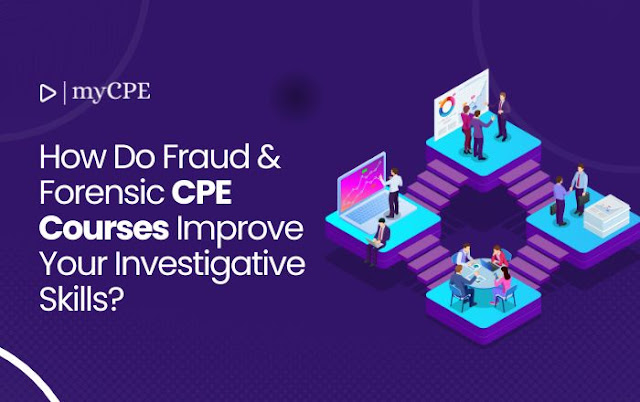Updated Ethics Courses for HRCI Recertification (2025)
In the fast-paced HR world, staying compliant with ethical standards isn't just a box to check—it’s the bedrock of your professional credibility. As 2025 approaches, HR professionals pursuing their HRCI recertification need to stay ahead of the game. Ethics courses tailored for this purpose are more than theoretical—they’re pragmatic, scenario-based, and packed with emerging trends to help you tackle modern workplace challenges.
HRCI Recertification Requirements in 2025
Let’s break down what’s new for HRCI recertification requirements in 2025.
Why Ethics Matters More Than Ever
The evolving nature of workplace dynamics has amplified the role of ethics. From addressing conflict management to handling workplace investigations, ethics courses equip HR professionals to safeguard organizational integrity and foster trust among employees.
HRCI requires HR professionals to earn recertification credits through continuing education. Ethics-specific courses have gained prominence due to their ability to navigate complex scenarios such as:
- Balancing transparency with confidentiality.
- Ensuring equity in conflict resolution.
- Adapting to emerging legal and ethical norms.
Key Focus Areas for 2025
For the 2025 cycle, ethics courses align with two overarching goals:
- Scenario-Based Learning Models – Real-world application through interactive case studies.
- Integration of Emerging Trends – Insights into topics like AI ethics, DEI (Diversity, Equity, and Inclusion), and data privacy.
Top Ethics Courses to Consider
Below is a curated list of must-attend ethics courses designed to meet HRCI recertification requirements and transform how you approach workplace ethics.
1. Podcast: HR Next - Blueprint for OSHA and Ethics
By Dr. Sohel Imroz
This insightful podcast delivers a dual punch—exploring OSHA compliance and ethical standards in tandem. Dr. Sohel Imroz simplifies complex regulatory frameworks and dives into how ethical considerations intertwine with workplace safety protocols.
Key Takeaways:
- Understanding OSHA’s role in ethical HR practices.
- Bridging gaps between compliance and real-world application.
- Practical tips for incorporating safety ethics into your organizational culture.
2. On-Demand: Professional Standards for a Workplace Investigation
By Meric Bloch
Ethical investigations can make or break organizational trust. Meric Bloch’s on-demand course is a goldmine for HR professionals seeking to strengthen their investigative skills while adhering to ethical standards.
Highlights Include:
- A roadmap for conducting unbiased investigations.
- Tools for handling sensitive information.
- Strategies for building rapport during interviews without compromising ethics.
3. On-Demand: The Ethical Management of Conflict
By Robbie Glantz
Conflict resolution isn’t just about solving disputes—it’s about managing them with integrity. This course, led by Robbie Glantz, emphasizes the ethical frameworks needed to turn conflicts into opportunities for growth.
Learn How To:
- Mediate disputes while maintaining impartiality.
- Navigate power dynamics in conflict scenarios.
- Ensure fairness and transparency in decision-making.
Scenario-Based Learning Models: A Game-Changer
One of the standout features of these courses is their reliance on scenario-based learning models. Unlike traditional lectures, these models place participants in real-world situations, demanding critical thinking and ethical decision-making.
Imagine being tasked with resolving a workplace harassment claim without jeopardizing confidentiality or fairness. Scenario-based learning empowers you to practice these challenges in a controlled environment, preparing you for real-world applications.
How It Works:
- Participants are presented with a real-life workplace dilemma.
- They’re guided through potential courses of action.
- Immediate feedback helps refine their approach.
Integration of Emerging Trends in Ethics
The HR industry is evolving rapidly, and so are its ethical challenges. In 2025, ethics courses are pivoting towards integrating emerging trends such as:
1. AI and Workplace Ethics
AI tools are revolutionizing HR, but they also raise ethical dilemmas. For instance, how do you ensure AI-driven recruitment processes are free from bias? Ethics courses now include modules on managing AI with accountability.
2. Diversity, Equity, and Inclusion (DEI)
DEI isn’t just a buzzword—it’s an ethical imperative. Modern ethics courses delve into creating inclusive workplaces while addressing unconscious bias and systemic inequalities.
3. Data Privacy and Security
Handling sensitive employee data is a core HR function. These courses address the legal and ethical considerations of managing and securing this data in an increasingly digital world.
The Role of Ethics in HR
Ethics isn’t an add-on to your HR toolkit—it’s a cornerstone. It ensures you’re not just enforcing rules but building a culture where employees feel valued, respected, and safe.
Why It Matters:
- For Employees: Boosts trust and morale.
- For Organizations: Protects against legal liabilities and reputational harm.
- For You: Strengthens your professional standing as an HRCI-certified HR leader.
Key Challenges:
- Balancing employee and employer rights.
- Navigating cross-cultural ethical differences.
- Keeping pace with evolving ethical expectations.
Conclusion: Stay Ahead with Ethical Expertise
Recertification isn’t just a requirement—it’s an opportunity to enhance your expertise and adapt to the ever-changing HR landscape. By enrolling in updated ethics courses for HRCI recertification in 2025, you’ll gain the skills needed to navigate complex workplace scenarios with confidence and integrity.
So, what are you waiting for? Level up your ethics game and lead the charge in building workplaces where ethics isn’t just a policy—it’s a practice.
.webp)


Comments
Post a Comment